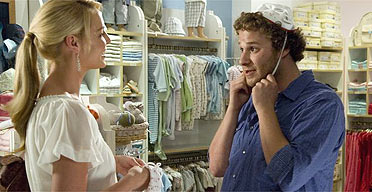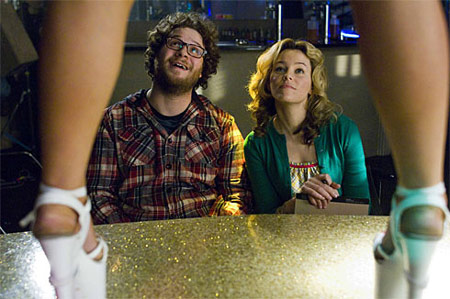 Hurrah for Andrew Collins and his recent appearance on Simon Mayo’s Five Live film Reviews.
Hurrah for Andrew Collins and his recent appearance on Simon Mayo’s Five Live film Reviews.
Why am I giving Mr Collins a pat on the back? It was all because of his review of PS I Love You.
Andrew was standing in for regular reviewer Mark Kermode and was lumbered with the unenviable task of reviewing the current release starring (double Oscar winner) Hilary Swank.
Now I haven’t seen the film and don’t really have much intention of paying my ill-gotten cash to watch it in the cinema, so I can’t pass comment on it.
However, I’m always intrigued to hear what critics who I respect have to say – after all, some rom-coms do occasionally achieve some sort of artistic merit that makes them worth seeing.
What would Andrew think of it? Well, he did leave the listeners in no doubt as to how sub-standard he thought it was, but (and it’s a big BUT) he admitted that, at the screening he went to, the film broke down after two-thirds of the movie, so he hasn’t seen the ending.
So what, I hear your cry. It’s usually pretty obvious if something’s a poor film, isn’t it? What does it matter, if you missed a bit?
Well, apart from being honest, Andrew was only echoing what all respectable critics would say. In other words, you can’t totally diss a movie, because the final 20 minutes of film may well prove to be a critical masterpiece, even if the first 100 minutes were as limp and lifeless as a dead haddock.
And, in these times of honesty and probity, on the BBC especially, it’s so refreshing to hear a critic admit that he can’t totally rubbish a film for reasons beyond his control.
I remember former BBC film critic Barry Norman explaining many years ago the downside of his job.
To paraphrase, he pointed out how much dross he had to sit through and that he was never able to leave the cinema early, no matter how execrable the film was.
Barry Norman’s point was, if someone spotted him doing so and then he dissed the movie in question, they could quite rightly say that the last 30 minutes were up there with Citizen Kane and make a big difference to the overall film.
So the next time you’re watching something awful in the cinema, remember that at least you have the choice to leave, however bad it is.





